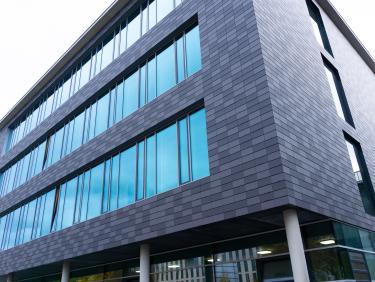Research City
The university is the centre of an excellent research network that includes numerous extra-university research and academic institutions in the research city of Heidelberg and the region. Research, teaching, and continuing education are the university's main spheres of activity in cooperation with its local and regional partners.

Strategic Partnerships
Institutionalised partnerships between Ruperto Carola and other universities and institutions in Heidelberg and the region allow for leveraging synergies in a number of areas. The Heidelberg Karlsruhe Strategic Partnership (HEiKA – Research Bridges) with the Karlsruhe Institute of Technology (KIT) and the Heidelberg School of Education (HSE) as a joint cross-institutional organisation of Heidelberg University and the Heidelberg University of Education (PH) promote strategic cooperation in research, teaching, the advancement of young researchers, and knowledge transfer.
Cooperations
The research city of Heidelberg is also characterised by the diverse cooperations with local and regional extra-university research organisations, including the German Cancer Research Center (DKFZ), the European Molecular Biology Laboratory (EMBL), four Max Planck institutes, the Heidelberg Institute for Theoretical Studies (HITS) and the Heidelberg Academy of Sciences and Humanities. The institutionalised alliance between the DKFZ and the Centre for Molecular Biology of Heidelberg University (DKFZ-ZMBH Alliance) is currently being expanded into a university-wide strategic cooperation. The Heidelberg Research Centre for Molecular Medicine – a cooperation of the university with the EMBL – is yet another example of successful interinstitutional cooperation in the research city. Among Ruperto Carola's regional partners are three Leibniz Institutes, the Central Institute for Mental Health (ZI) in Mannheim, and the GSI Helmholtz Centre for Heavy Ion Research.
In the field of continuing education, Ruperto Carola cooperates with local university-affiliated educational institutions, including the German-American Institute (DAI) and the Confucius Institute. Their joint activities promote dialogue with the broader public.
International cooperation with the university's partner institutions also aims to permanently strengthen the research city of Heidelberg and to realise even more potential from its established spectrum of subjects. In its three major spheres of activity, the university has become a signficant actor in its strategic target regions: It pursues teaching, research, and transfer to, with, and in South Asia, East Asia, the two Americas, and Europe.
Links
Heidelberg Mannheim Health & Life Science Alliance
The world’s first medical campus was founded in the Bergheim district of Heidelberg in the mid-1800’s – pioneering modern clinical facilities and sparking a host of innovations in medical research and teaching. More than 150 years later, life science and medical researchers and institutions in the Rhine-Neckar region are joining forces in the Heidelberg Mannheim Health & Life Science Alliance and preparing to take a quantum leap in innovative research, patient care and health economy.





